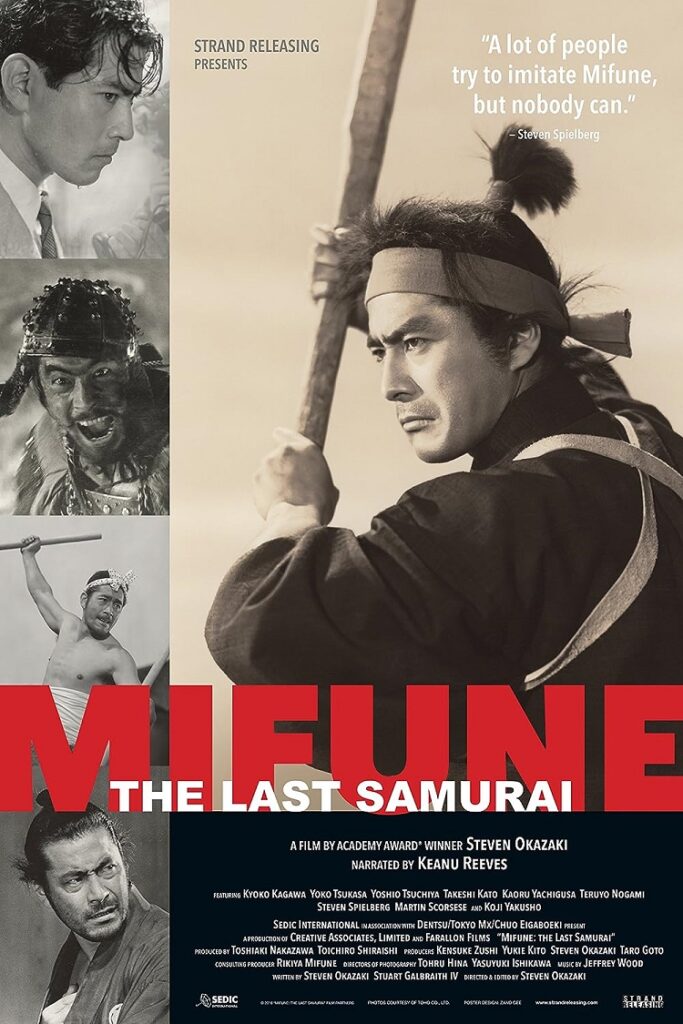
Award-winning filmmaker Steven Okazak’s documentary tells the story of Japanese actor Toshiro Mifune, who together with director Akira Kurosawa became worldwide sensations because of their work together on 16 films, from Drunken Angel (1948) to Red Beard (1965). Narrator Reeves says they were “some of the greatest movies ever made…Together, they influenced filmmaking and popular culture around the world.” Their partnership was such an integral part of their lives, it’s not a surprise it’s an integral part of this documentary as well.
Because film was such an important part of what he became, the story of Mifune: The Last Samurai starts before he was born in 1920 and goes back to 1897 when the Lumiere Brothers brought cameras to Japan in 1897. Clips from silent films created as a result are shown. Mifune was born in China and didn’t come to Japan until he was drafted into the army. His eldest son Shiro tells of his military time and the effect it had on his father. Other interview subjects who talk about the man and his work include directors Steven Spielberg and Martin Scorsese, actors Takeshi Kato, Kyoko Kagawa, and Haruo Nakajima, who played Godzilla and a bandit in Seven Samurai.
Mifune tried to get a job as a camera assistant at Toho Studios, but somehow got put up for an acting job. In 1947, he appeared in Snow Trail, which was scripted by Kurosawa, and he was later cast in Drunken Angel. Their work on Rashomon, not only brought international attention to both men, but Japanese cinema as well.
In addition to his work with Kurosawa, Mifune worked on other projects like the Samurai trilogy. Their last film together was Red Beard. There’s no clear explanation why they never worked together again, other than the vague idea that some working relationships run their course. Whatever the reason, and surely something happened between them, it is a loss to their fans and the medium.
Mifune kept working in Japan and abroad, but never achieved the same great heights. While a hero on screen, he was flawed human, who had marriage troubles and then health issues until his death on December 24, 1997. Unable to leave his home, Kurosawa sent a letter that was read at the funeral, and in less than a year he died on September 6, 1998.
Mifune is a straightforward biography that reveals little more than the story of the man’s life. It’s a wonderful remembrance fans should enjoy and showcases the acting talents of Mifune, but it may not speak to others because it doesn’t tell a larger story that applies to others’ lives.